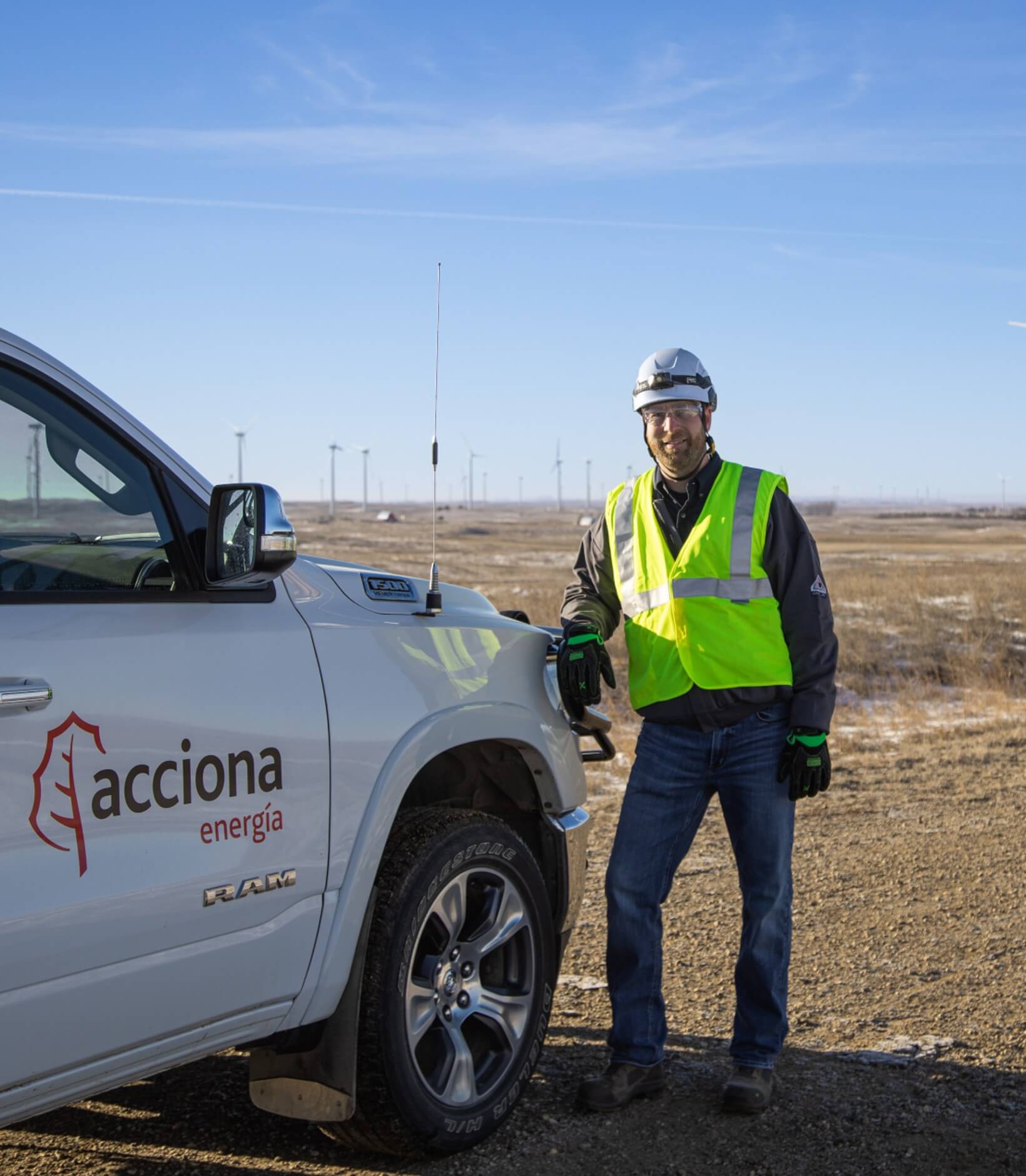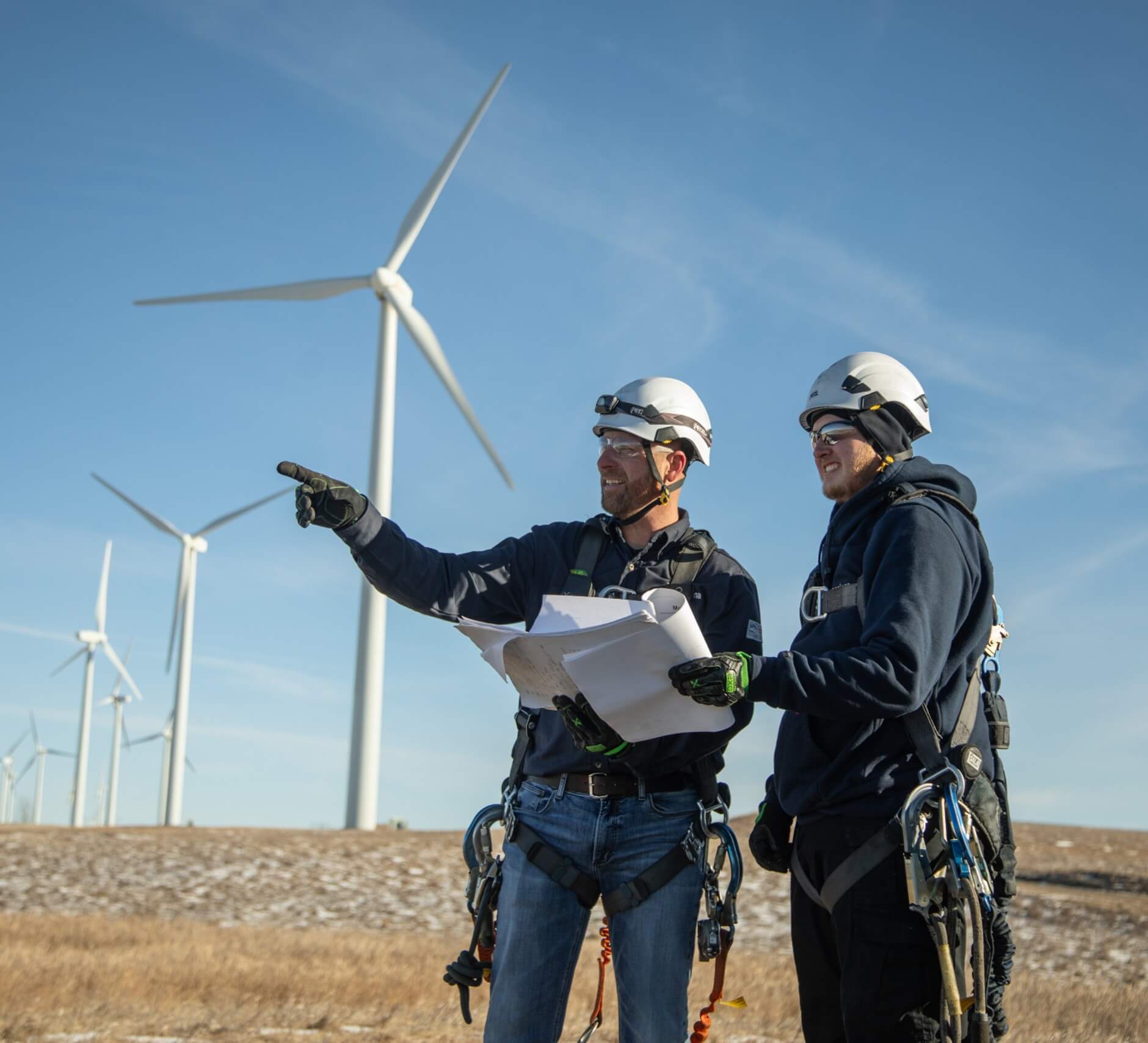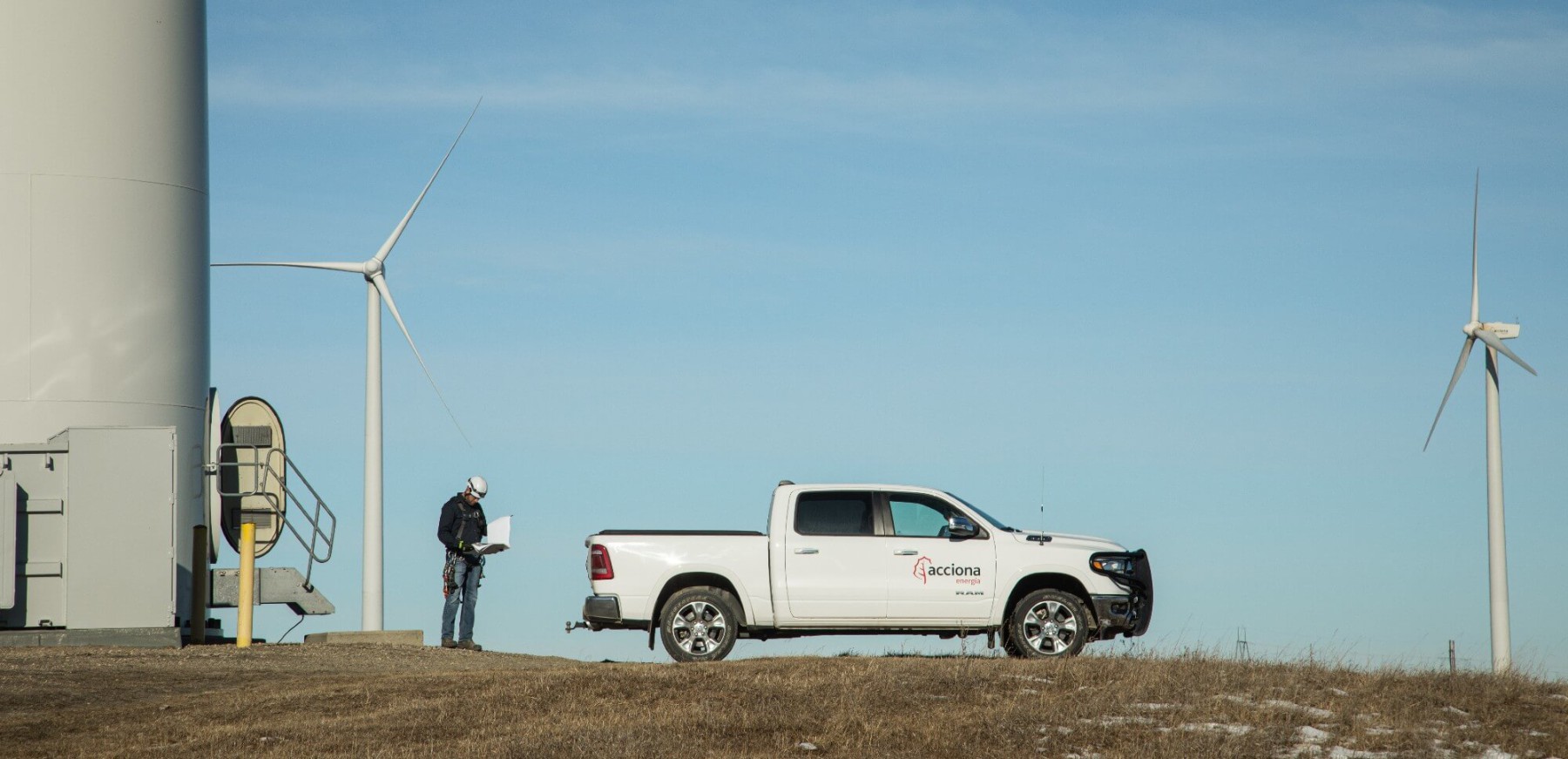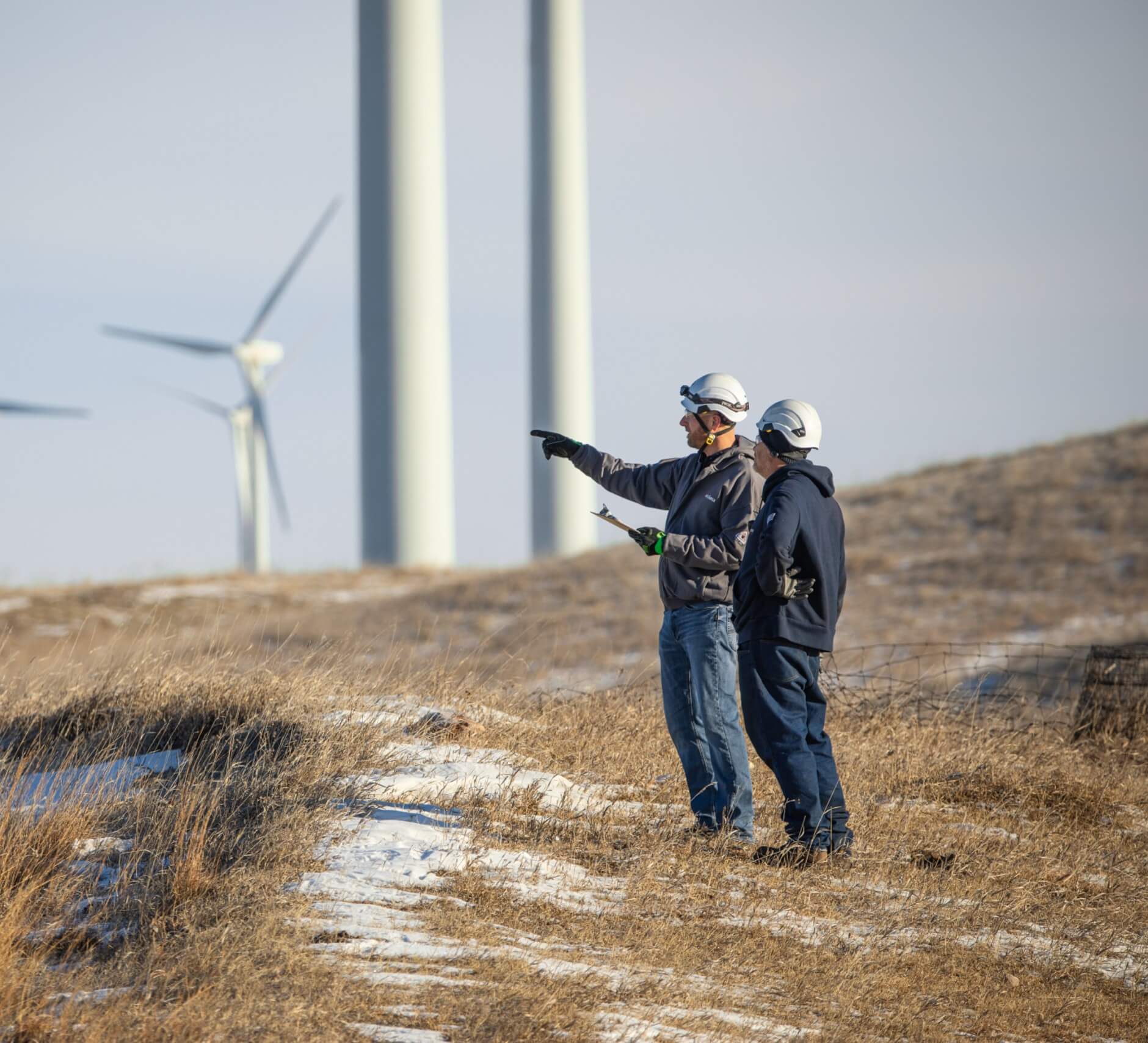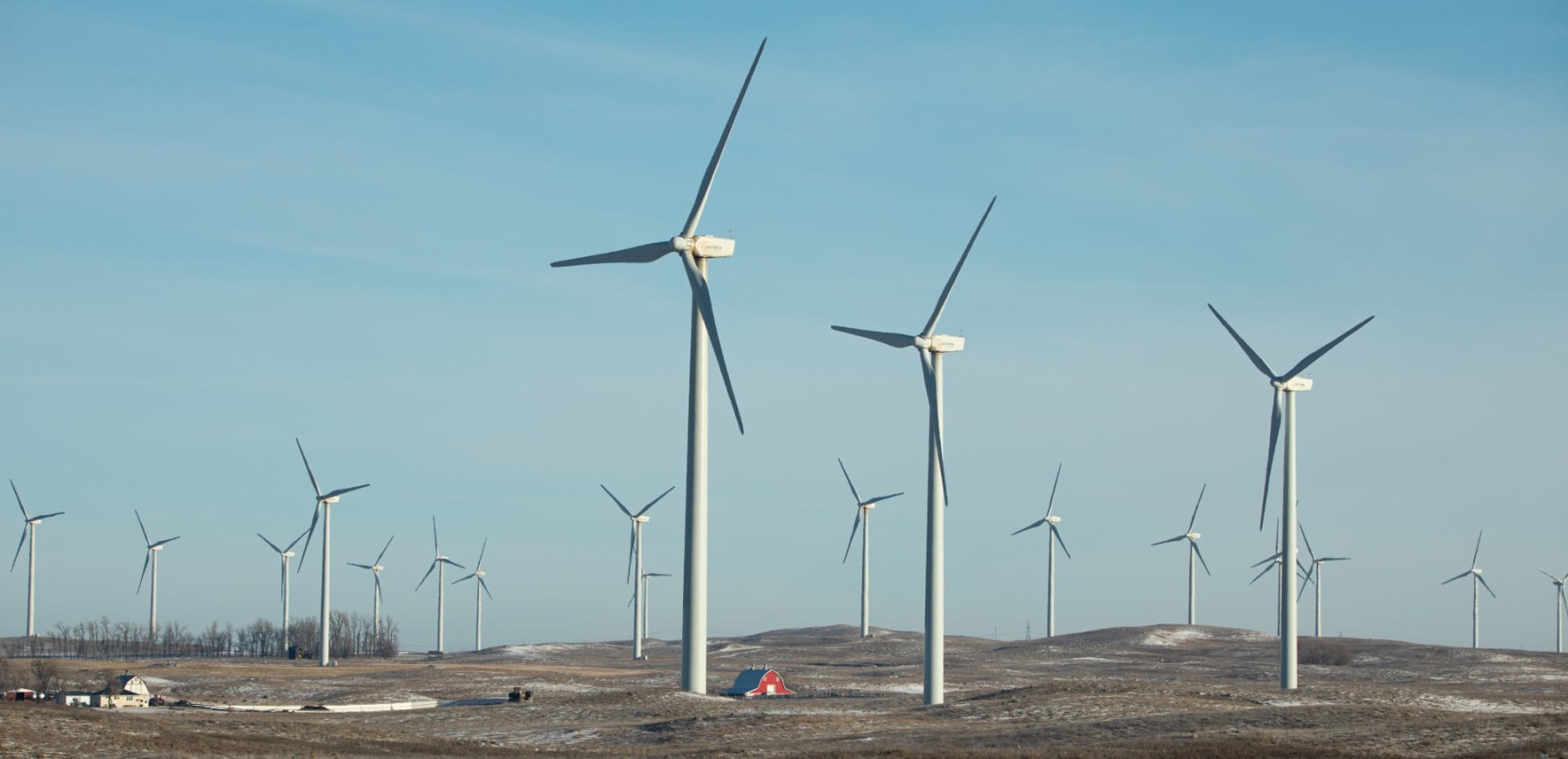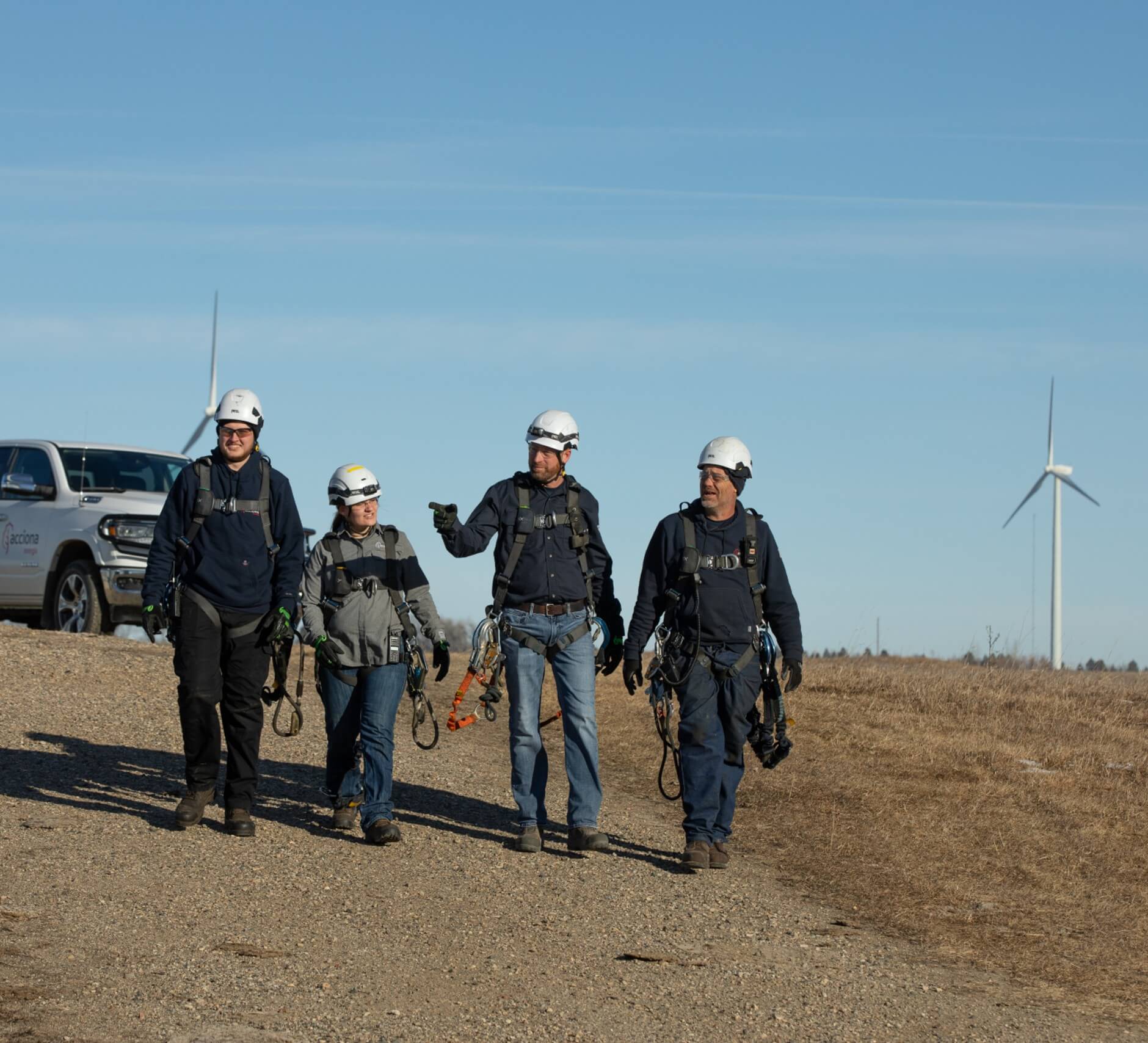In the end, patience and tenacity paid off, “I’m not sure I would have become a lead or a site manager here at this wind farm if I wouldn’t have started here from the ground… Sometimes you got to start at the bottom and work your way to the top, and you’re not going to make it on the first year. It takes time.”
Alongside personal growth challenges, there’s the challenge of the wind farm itself. Here, Mike explains that Tatanka’s energy production depends on factors beyond turbine capacity, such as transmission line capacity, Power Purchase Contracts (PPC), and energy demand. “I know what my wind farm’s capable of and would like to take it to peak performance,” he says.
Curiosity is the mother of professional growth
Returning to his daily work, Mike emphasizes the crucial importance of safety: “I think if I can give [my workers] all the tools and knowledge that they need, then they’re going to go home safely. The biggest contribution I can have is to make sure everybody goes home to their family, and that’s basically my goal here.” But who are the members of that workforce? How did they get there? How can they grow within the company? “We don’t have just wind turbine technicians or anything like that. We can have anywhere from a diesel mechanic to an Industrial Mechanic . So everybody brings something different, and they’ve seen something different in their life that can help add value to the team.”
“Everybody here brings something different, and they’ve seen something different in their life that can help add value to the team.”
Often, these candidates come from diverse backgrounds, much like Mike years ago. “One guy was a diesel mechanic and he applied here but didn’t get a call. So he was a mechanic for a couple of years and then he was still fascinated at how wind energy was made, so he applied again. So we’ve got him on board.” Training is crucial, “We’ll take about anybody that’s interested, that wants a job and wants to be here. Because we basically have said we will train them to do what we want them to do. If you have no training, we don’t have to untrain bad habits.”
